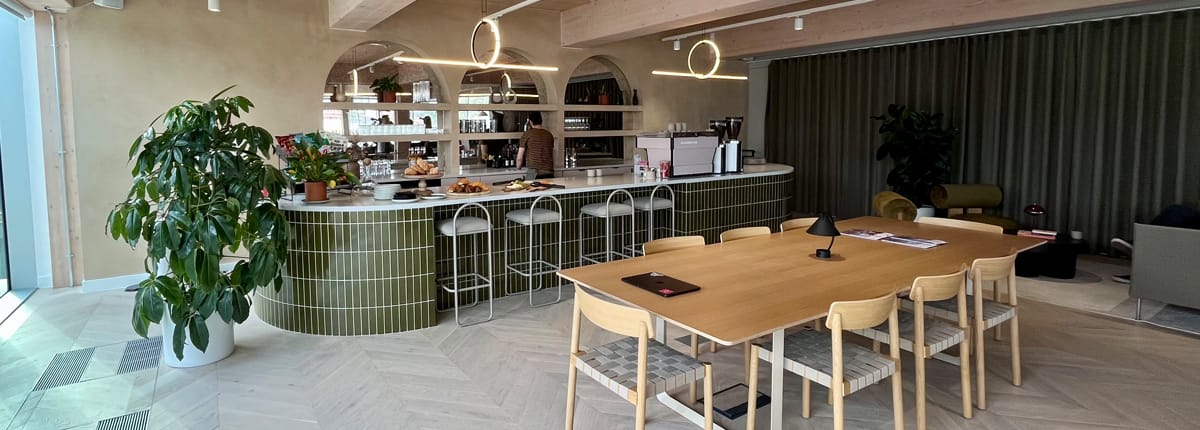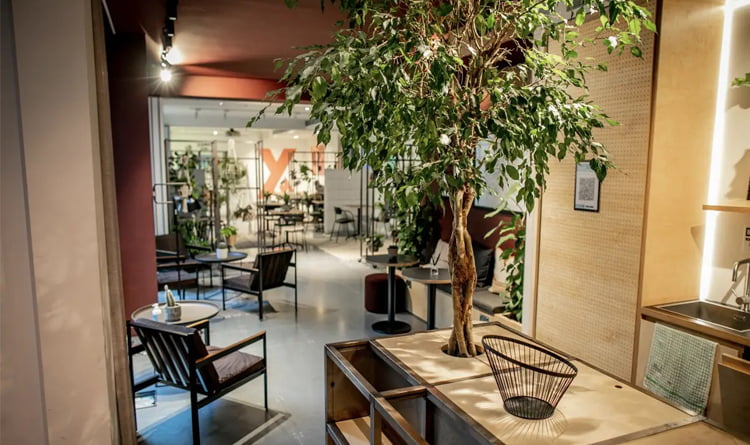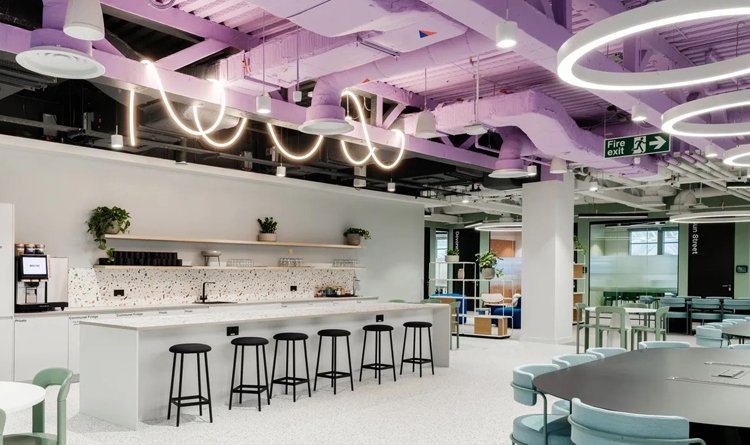
A Guide To Securing Your Perfect Office
London is an epicentre of global business, attracting companies worldwide with its vibrant economy, diverse talent pool, and strategic location. For any business looking to establish a presence in the UK, securing the right office space in London is crucial. Whether you’re a startup looking for your first office or an established company seeking to expand, finding the right office to let in London can significantly impact your business’s growth and success.
In this guide, we’ll explain everything you need to know about finding and securing the ideal office to let in London. From understanding the key districts and office types available to navigating the lease process and moving in, this comprehensive resource will equip you with the knowledge you need to make an informed decision.
Securing the Ideal Office To Let in London: A Comprehensive Guide
The Benefits of Renting Office Space in The Capital
London is one of the world’s leading financial and business centres, home to the headquarters of numerous multinational corporations, financial institutions, and tech giants. Its status as a global business hub makes it an attractive location for companies looking to establish or expand their operations in Europe. By renting an office space in London, your business can benefit from access to a vast network of potential clients, partners, and investors.
With over 9 million residents and a workforce that attracts talent from around the globe, London offers a diverse, highly skilled talent pool. Whether you’re in finance, technology, media, or the creative industries, London is home to top talent in every sector. Renting an office in London can give your business a competitive edge by making it easier to attract and retain top talent.
London boasts world-class infrastructure, including an extensive public transport system, five international airports, and numerous rail connections to other major cities in the UK and Europe. Renting an office in London ensures your business is well-connected, locally and internationally, making it easier to conduct business and maintain global relationships.
An office in London can elevate your business’s brand and reputation. Whether you’re located in the financial district of the City of London, the creative heart of Soho, or the trendy tech hub of Shoreditch, having a prestigious London address can enhance your company’s image and open doors to new opportunities.
Where Do You Want To Be Located?
Do you want to be based in the City of London? Known as “The Square Mile,” the City of London is the historic and financial heart of the capital. Home to the London Stock Exchange, the Bank of England, and the headquarters of numerous financial institutions, the City is the ideal location for businesses in finance, law, and related sectors. Offices for rent in this area tend to be high-end, featuring modern facilities and premium rental prices. If you’re looking for a prestigious office in London that puts you at the centre of the financial world, the City is an excellent choice.
Canary Wharf
Located to the east of the City, Canary Wharf is another central financial district characterised by its iconic skyscrapers and state-of-the-art office buildings. Canary Wharf is home to the European headquarters of many multinational corporations, particularly in the banking, media, and professional services sectors. Offices to let in Canary Wharf offer a blend of modernity, convenience, and spectacular views, making it a popular choice for large corporations and growing businesses alike.
West End
The West End is London’s entertainment and cultural hub, known for its theatres, restaurants, and luxury shopping. However, it’s also a prime location for businesses, particularly those in the creative industries, media, and fashion. Areas such as Soho, Covent Garden, and Mayfair offer a range of office spaces, from boutique offices in historic buildings to modern serviced offices. Renting an office in the West End positions your business in a dynamic and inspiring environment that can foster creativity and innovation.
Shoreditch & Old Street
Shoreditch, often referred to as the “Silicon Roundabout,” is London’s hub for tech and startups. This vibrant area is home to a wide range of coworking spaces, tech incubators, and innovative companies. Suppose you’re a tech startup or a creative business looking for an office to let in London. In that case, Shoreditch offers a variety of flexible, affordable options within a community-driven environment.
Southbank
Southbank is an emerging office district that offers a mix of culture and commerce. With its riverside views and proximity to iconic landmarks such as the Tate Modern and the Southbank Centre, this area is attractive to media companies, creative agencies, and businesses seeking a unique office environment. Southbank offers a range of office spaces for rent, from modern high-rises to converted warehouses.
Mayfair & Knightsbridge
For business, prioritise luxury and exclusivity; Mayfair and Knightsbridge are the top choices. These affluent neighbourhoods offer offices in some of London’s most prestigious addresses, often housed in historic buildings with luxurious interiors. Renting an office in Mayfair or Knightsbridge is ideal for companies that want to project a high-end image, such as private equity firms, hedge funds, and luxury brands.
Types of Office Spaces Available in London
Serviced Offices
Serviced offices are fully furnished, ready-to-use spaces that include all necessary amenities, including utilities, internet, cleaning services, and reception staff. These offices are ideal for businesses that need a hassle-free solution and value flexibility. With short-term lease options and the ability to scale up or down as needed, serviced offices are a popular choice for startups, small businesses, and companies with fluctuating space requirements.
Coworking Spaces
Coworking spaces are shared office environments that offer flexible, affordable workspace options. These spaces are particularly popular among freelancers, startups, and small businesses looking for a collaborative atmosphere. Coworking spaces in London often offer a range of membership options, including hot desks and private offices, as well as access to meeting rooms, event spaces, and networking opportunities. Renting a coworking space in London can be a cost-effective way to establish a presence in the City while benefiting from a dynamic, community-focused environment.
Managed Offices
Managed offices offer a middle ground between serviced offices and traditional leases. These spaces offer the flexibility of serviced offices with added customisation. Businesses can tailor the office layout, furniture, and branding to their specific needs while still benefiting from shared services such as reception, maintenance, and IT support. Managed offices are ideal for businesses seeking greater control over their workspace without the long-term commitment of a traditional lease.
Traditional Leases
For businesses that require long-term stability and control over their office environment, a traditional lease is the best option. Traditional leases offer the freedom to customise the space, from the layout to the décor. They are typically more cost-effective in the long run compared to serviced or managed offices. However, they also come with longer lease terms, higher upfront costs, and the responsibility for maintenance and utilities. Renting an office in London under a traditional lease is ideal for established companies with clear long-term plans.
Sublet Offices
Subletting an office is an excellent option for businesses that require flexibility or are seeking to reduce their rental costs. Sublet offices are spaces rented from another company that holds the primary lease. These spaces can be more affordable than direct leases and often come fully furnished, with utilities and internet already set up. Subletting an office in London is particularly attractive for startups and small businesses that need a temporary or short-term workspace.
Factors To Consider When Choosing an Office
The location of your office can significantly impact your business, influencing everything from client attraction to employee satisfaction. When selecting an office to rent in London, consider the following:
- Proximity to Public Transport: London’s extensive public transport network makes it easy to commute from almost anywhere in the City. However, being close to a central transport hub, such as a Tube station, bus stop, or train station, can make your office more accessible to both employees and clients.
- Nearby Amenities: The availability of local amenities, such as cafes, restaurants, gyms, and retail shops, can enhance the work-life balance of your employees and make your office more attractive to potential clients.
- Surrounding Business Environment: Consider the type of businesses located in the area. For example, if you’re in the tech industry, being in Shoreditch might provide better networking opportunities than being in a location in the West End.
Budget & Costs
Office rental prices in London can vary widely depending on location, space type, and lease terms. Before starting your search, it’s essential to establish a budget that includes not only the rent but also additional costs such as the following:
- Utilities & Internet: Factor in the cost of electricity, water, heating, and internet services when budgeting for your office.
- Business Rates: In the UK, businesses are required to pay business rates on their premises. The property’s rateable value determines the amount, so it’s essential to budget for this expense.
- Service Charges: If you’re renting a serviced or managed office, additional service charges may apply for maintenance, security, and other shared services.
- Fit-Out Costs: If you’re signing a traditional lease or managed office, consider the cost of fitting out the space to meet your specific needs, including furniture, partitioning, and branding.
- Deposit & Legal Fees: Be prepared to pay a deposit upfront, as well as legal fees associated with signing the lease.
Lease Terms & Flexibility
Lease terms can vary depending on the type of office space you choose. It’s essential to carefully review and negotiate the lease terms to ensure they align with your business needs. Key factors to consider include:
- Lease Length: How long are you committed to the lease? If you’re a startup or expecting rapid growth, you may want a shorter lease term with an option to renew.
- Break Clauses: Does the lease include a break clause that allows you to terminate the lease early? This can provide valuable flexibility, especially for growing businesses.
- Fit-Out & Dilapidations: Negotiate who will be responsible for the fit-out and any dilapidation costs at the end of the lease.
- Rent Reviews: Understand how and when rent will be reviewed during the lease term. Rent increases can impact your budget, so it’s crucial to negotiate favourable terms.
- Repair & Maintenance Responsibilities: Clarify who is responsible for repairs and maintenance. In a traditional lease, these costs often fall on the tenant, whereas serviced and managed offices typically include these services.
Getting Your Space Requirements Right
Your office space should be tailored to your business’s specific needs. Consider the following when evaluating potential offices to let in London:
- Size & Layout: Ensure the office space is large enough to accommodate your team and any planned growth. The layout should also support your work processes, whether you need open-plan areas, private offices, meeting rooms, or Breakout spaces.
- Future Growth: If you anticipate future expansion, look for offices that can accommodate additional staff or have the option to take on more space.
- Facilities & Amenities: Consider what facilities are essential for your business, such as high-speed internet, air conditioning, on-site parking, or bike storage.
How To Rent an Office in London
The first step in securing an office to let in London is to start your search early. The London office market is highly competitive, so it’s essential to allocate sufficient time to find the ideal space. Begin by:
- Using Online Portals: Websites like Rightmove, Zoopla, and Gumtree offer listings for offices to let in London, allowing you to search by location, size, and budget.
- Engaging a Commercial Real Estate Agent: A commercial real estate agent with experience in the London market can help you navigate the complexities of finding and securing an office. Officebroker.io can access off-market listings, negotiate on your behalf, and offer valuable insights into market trends.
- Networking: Tap into your professional network to find out if anyone knows of available office space. Networking events, industry forums, and business groups can be valuable resources for finding office space.
Conduct Viewings
Once you’ve shortlisted potential offices, arrange viewings to assess the spaces in person. During viewings, pay attention to the following:
- Condition of the Property: Check the overall condition of the office space, including the quality of fixtures, fittings, and common areas. Consider whether any repairs or improvements will be needed before moving in.
- Natural Light & Ventilation: Natural light and good ventilation can significantly impact employee wellbeing and productivity. Ensure the office has adequate windows and ventilation systems.
- Noise Levels: Evaluate noise levels in the office and the surrounding area. Excessive noise can be distracting and may affect your team’s productivity.
- Security: Verify the security measures, including CCTV, access control systems, and on-site security personnel. A secure office environment is essential for protecting your assets and data.
- Flexibility of the Space: Consider how flexible the space is for future layout changes. Can the space be adapted to suit your business needs, or are its features fixed?
Finalise The Lease
Before signing the lease, have it reviewed by a lawyer specialising in commercial property. They can ensure that the terms are fair and protect your business interests. Once the lease is signed, you’ll need to pay the deposit and the first month’s rent.
Plan Your Office Move
After securing your office in London, it’s time to plan your move. Consider the following steps to ensure a smooth transition:
- Hire Professional Movers: Engage a professional moving company with experience in office relocations. They can handle the logistics of the move, ensuring that your equipment and furniture are safely transported.
- Set Up IT & Communications: Coordinate with your IT team to establish internet and phone lines, and any necessary software, before the move.
- Notify Stakeholders: Inform your clients, suppliers, and service providers of your new address. Update your business cards, website, and other marketing materials with your new office location.
- Celebrate the Move: Once settled in, consider hosting a small office-warming event to celebrate the move with your team and clients.
Bringing It All Together
Finding the right office to let in London is a significant step for any business. By understanding the market, considering your specific needs, and following a strategic approach to your search and lease negotiations, you can secure a space that supports your business’s growth and success.
Whether you’re looking to rent a prestigious serviced office near Liverpool Street in the City, a creative space in Shoreditch, or a flexible coworking environment at Camden, London offers a diverse range of office spaces to suit every business. With careful planning and consideration, you can find the perfect office to let in London and take your business to new heights in this dynamic, global City.










